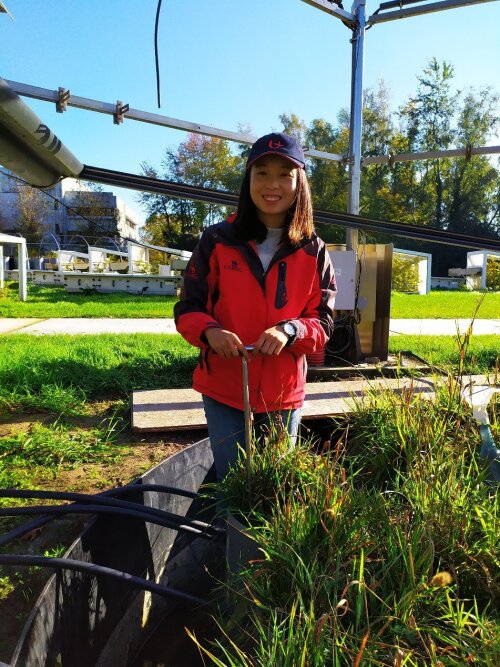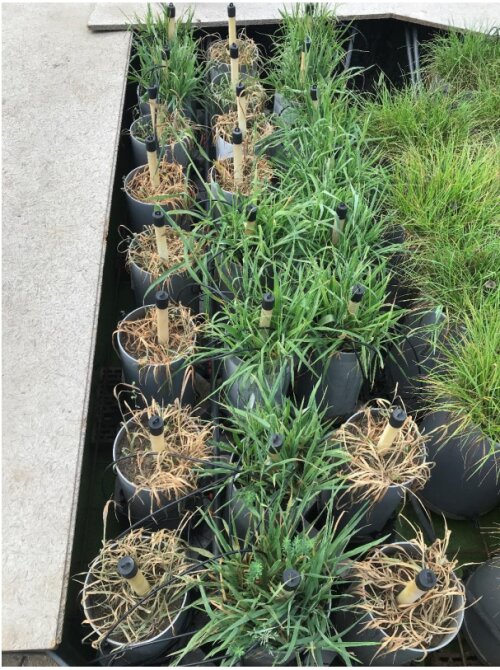More persistent weather changes soil microbes
Climate change is making the weather more persistent in Europe, with longer periods of both rainy weather and dry weather. We have limited knowledge about the impact of this newly emerging weather pattern on the microorganisms in the soil. This implies we currently cannot predict how potential changes in microbial life might subsequently affect plants.
Lingjuan Li (Global Change Ecology Centre, Research Group Plants and Ecosystems) conducted an experiment to address this knowledge gap, the results of which she published in a new paper. Together with her co-authors, she subjected grassland soil to two conditions: ‘typical, rapidly fluctuating weather’ and ‘more persistent weather with alternating long spells of dry and wet weather’, during an entire year. “Our previous studies showed that direct exposure to more persistent weather deteriorates plant growth and soil functioning,” says Lingjuan. “To test whether these weather patterns also have indirect effects or leave a memory or legacy effect in the soil, we took a sample of this conditioned soil and blended it with sterilized soil. We then planted new vegetation on this soil mixture and exposed it again to persistent weather, to compare it with similar vegetation grown on soil that was not inoculated with such ‘soil memory’.”

Lingjuan Li taking a soil sample (credit Olga Vinduskova)
The study revealed that inoculation with soil previously exposed to more persistent weather had a lasting impact on the fungi species present in the soil, but only a temporary effect on the bacteria. Surprisingly, this alteration in the soil microbial composition did not influence the growth of the new plants when persistent weather patterns returned. This indicates that the soil microbial memory of climate change did not make the plants more climate change resistant.
Lingjuan: “Overall, our study shows that persistent weather can leave an enduring imprint on soil fungal communities. However, at least on this short term, this does not make plants more robust in the face of climate change.”

The experiment (credit Lingjuan Li).